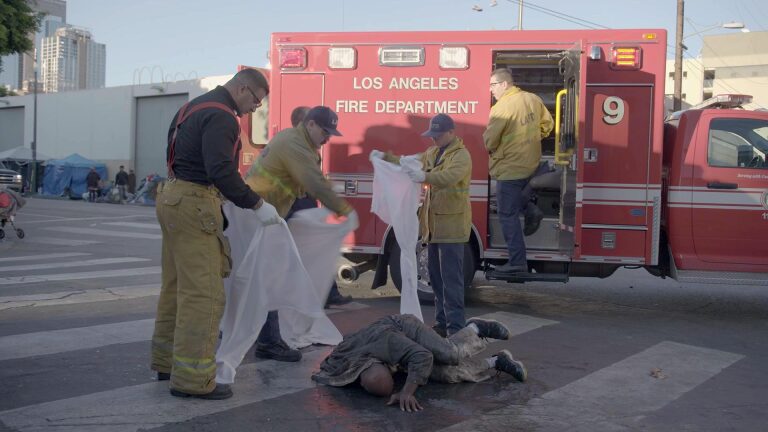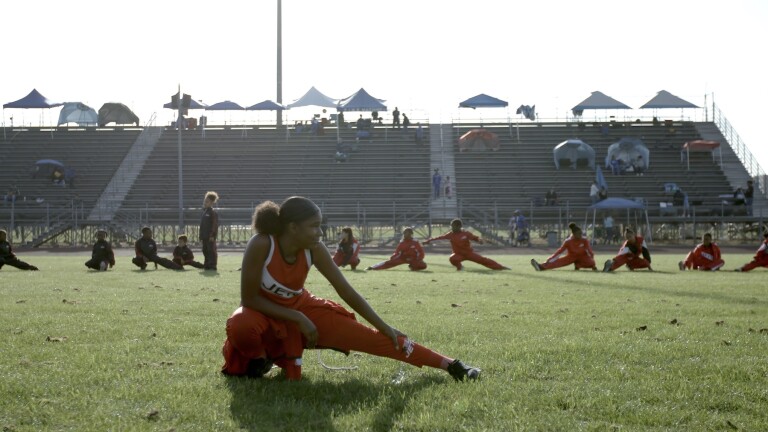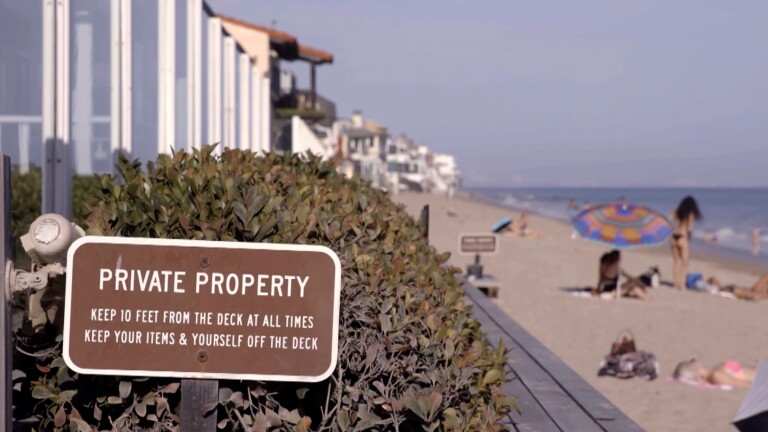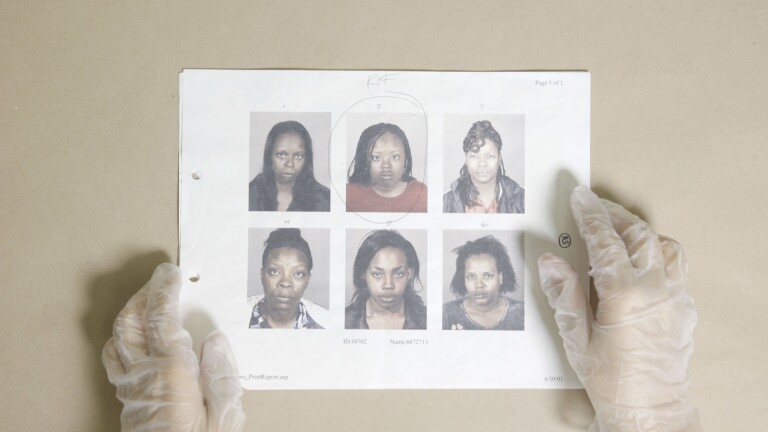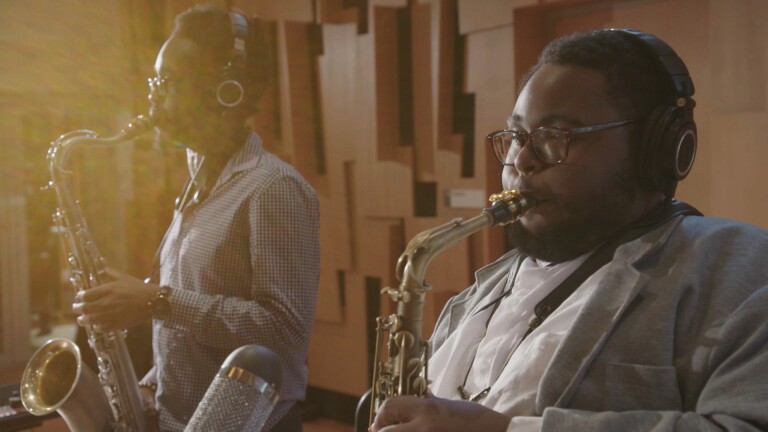
Courting Disaster: Budget Cuts Take Heavy Toll on L.A. Courts
We take an exclusive look at the economic crisis inside Los Angeles Superior Court, where lives stand still, clogged in the largest judicial system in the nation. "SoCal Connected" was allowed to film inside courtrooms throughout L.A., including unprecedented access to children's dependency court. As correspondent Jennifer London reports, whether it's fighting for custody, filing for divorce or arguing a traffic ticket, everyone is courting disaster.
TRANSCRIPT:
Jennifer London: It's a typical weekday morning outside Los Angeles Traffic Court - hundreds in line - and once they make it inside a courthouse, more standing in line.
Los Angeles Superior Court - the largest judicial system in the country. Three million people come through here every year, filing for divorce, fighting evictions, filing lawsuits and everything in between. And the wheels of justice are about to fall off, thanks to a statewide $50-million budget cut to the judicial system. And here in Los Angeles, it was just announced 50 courtrooms will soon close and 300 court workers will be laid off.
Michael Vicencia/L.A. Superior Court Judge: We see a backlog in everything we do, from families, civil, criminal and traffic. We see it first in traffic, because that is the highest volume.
London: And that means you're going to have to wait a lot longer for your day in court.
Man in Line: I had to wait almost one full year to get a court date. Incredible.
London: Waiting a year to fight a traffic ticket can be an annoyance, but waiting three years to get your divorce finalized can be a disaster.
Man on Street: It's a situation where someone wants to move on with their life. Why should it be so hard?
London: Some cases are now tried one day a month over the course of a year.
Man on Street: The court just doesn't have three weeks straight to give to someone who has a real 10-day trial, so you end up doing a couple hours here, a couple hours there, and it drags on forever. It's horrible!
Tani Cantil-Sakaueye/California Chief Justice: It has devastating effects on real people - on all of us, in fact. What delay does to a case or a person who has a crisis in their life, I think it is equally devastating to be told, "Come back in four months and then we'll hear your case on child custody." What's a person to do in four months?
London: And what about a foster child waiting to reunite with parents? The Los Angeles Dependency Court is the largest in the nation, caring for more than 25,000 children. KCET has been given unprecedented access, and while we can't show you the faces of the children, you will see the judges, attorneys and social workers who are struggling to serve them under the enormouse pressure of shrinking budgets.
[Bailiff addressing courtroom]: Remain seated. Come to order. Department 415 is now in session. Quiet please.
London: It's 9 a.m. on a Thursday morning in Judge Amy Pellman's courtroom.
Judge Amy Pellman [addressing courtroom]: Good morning. Let's do calendar call.
London: There are attorneys representing the children, the parents and the county. There are the court clerks. And there are 33 cases to be heard in six hours.
In this courtroom, Judge Pellman will make critical, life-changing decisions - which parents will get their children back, and which ones will lose them. And there's little time to ponder those decisions. She is racing the clock.
Pellman [to courtroom]: All right, No. 6. Come on, come on!
London: This mother is asing for more monitored visits with her son, who is in foster care.
Pellman [to mother]: Okay, what I'm reading in the report is that you haven't been all that consistent with the visitation.
London: Judge Pellman grants Mom's request. The case is over in six minutes. Next, a mother and grandmother can't agree on care for their special needs child.
Pellman [to mother and grandmother]: And if Passion gets along with this person that your daughter has picked, and she's treating her well, that is who we are going to have. You understand?
London: Then there is the newborn baby girl taken from her parents by social workers. Mom and Dad are a no-show at the hearing.
Attorney [to Pellman]: I think the parents were, in the previous case the parents were squatting at this address. I'm not sure that they're still there, because the child was taken to the hospital.
London: The baby will join her brother in foster care.
Pellman [to courtroom]: The department can look into placing this child with the sibling George, if that's possible.
London: By 11 a.m., Judge Pellman has heard four cases, and she's already behind schedule.
Pellman: I try to let everybody have their day in court, but it is a real time pressure. There is just not enough hours in the day to get everything done. So it is extremely difficult. I've got to be conscious of the fact that I've got tons of kids, tons of parents, waiting out there, sitting there all day long with nothing to do, waiting to come in here, and then they come in here for five or 10 minutes.
Michael Nash/Presiding Judge, Los Angeles Dependency Court: How much time do you have really to discuss the meaningful issues that we have in these cases and to make the really important decisions that we make about kids and families every single day? And we're talking about a couple of minutes!
London: Los Angeles Dependency Court Presiding Judge Michael Nash says overworked and understaffed courts are hurting L.A.'s most fragile families.
Nash: It's actually fairly accurate to say that, you know, we're dealing with these families in a much more superficial way than we really need to in order to achieve the best oucome for kids and families. And trust me, that's a problem!
London: The attorneys don't have it any easier.
Leslie Heimov/Director, Children's Law Center: Twenty-five thousand children are involved in the dependency court system here in L.A. County, and we represent all of them.
London: Leslie Heimov is the director of Children's Law Center, which employs 120 attorneys. Heimov: Right now in Los Angeles, most of our attorneys represent upwards of 240 children. The recommended caseload size is 160 children.
London: The courts and the attorneys cannot turn down cases, even though resources are shrinking. A recent judicial report suggested L.A. Dependency Court should have 44 courtrooms based on the number of people in need. Judge Nash has only 20.
Nash: So you have to think, "Well, how much time are we spending on each case in court today?" And if you figure it out, sometimes it probably averages less than - considerably less than - 10 minutes!
London: And sometimes, both attorneys and judges learn facts in a case just minutes before it's heard.
Pellman [to courtroom]: I was just handed these TILPs 30 seconds ago.
Attorney [to Pellman]: Your honor, on behalf of Alejandra, I myself just got the TILP, as well. If we could just look at it just for a moment together...
Heimov: If the attorney isn't able to get to the things on Monday that they had hoped to get to on Monday and they get pushed over until Tuesday, you know, with each day it's a child that is waiting for treatment, or waiting for a sibling visit, or waiting to have a motion filed on their behalf perhaps.
London [to Heimov]: So kids are getting stuck in the system longer, it sounds like.
Heimov: Getting stuck either longer or not always getting what they need as quickly as they should.
London: And that's what worries Judge Pellman about this about. His dad isn't in the picture, and his mom is in prison for murder. He's struggling to stay in school.
Attorney [to judge]: It appear sthe issues right now are not safety issues but issues regarding his education and theapeutic services.
London: The boy is assigned another attorney to help him get those services - more delays.
Pellman: There is not enough programs. The programs for children are also being cut, and I think's something that people don't talk about a lot.
London: Millions have been slashed from low-cost services for children and parents. Programs like domestic violence and drug rehab can be essential if parents want to get their kids back. Attorney Ken Krekorian heads the Los Angeles Dependency Lawyers. He represents the parents.
Ken Krekorian/Los Angeles Dependency Lawyers: We represent indigent clients. They have no money. Now with the budget cuts, they cannot get free services, they cannot get low-cost services. The waiting lists are tremendously long, and that really impacts the clients and their ability to get their children back.
London: Another challenge - Los Angeles is the only county in California to require parents to pay for the services themselves.
Marlene Furth/Attorney for Parents: We see this many times with the domestic violence programs. If the court has ordered a 52-week domestic violence program, that could cost up to $1300, and it has a huge impact, because if you can't pay for it, you'll start the program and then you just can't afford it.
Krekorian: When there's a lack of services available to them, they cannot start those programs in a timely manner. Thus, they can't complete them in a timely manner. They are going to lose their children.
London: That almost happened to Michelle Dodge.
Michelle Dodge/Mother: It was the worst feeling I've ever had to think that I might not get my little girl because I'm on some waiting list, and I have this time limit and I'm doing everything I can to try and get into somewhere.
London: Michelle lost custody of her daughter last year because she was abusing drugs. She says she spent three months trying to enroll in a court-mandated rehab class but found many were closed because of budget cuts.
Dodge: Finding a program that would accept me right away was impossible. There was waiting list after waiting list that I had to be on and then I had to pay for it.
London: Michelle got into a program just in time. Other parents aren't so lucky.
Patricia McKenna/Court Worker: They're on a time clock, and they need to get into things right away. And when you have parents that have limited resources, perhaps no income, monolingual, those services are even more scarce.
London: Patricia McKenna works within the courthouse helping parents get the services they need.
McKenna: They're here to try to show the court that they're doing what they're supposed to do to reunify with their children, and unfortunately, a lot of families don't. London: We saw that kind of case in Judge Pellman's courtroom later that day - two parents trying to get their son back.
Mother [to court]: We needed help, and I was the one who called the police on us. I knew that we were out of control.
Attorney [to mother]: And when you say that you needed help, what do you mean, what did you need help with?
Mother [to court]: We were addicted to drugs, and our lives were way out of control.
London: Mom completed drug rehab, but recently failed a drug test. That could hurt her chances. But when her husband took the stand, he was able to talk about how drug rehab and domestic violence classes have helped.
Attorney [to husband]: Can you tell the court what you've learned about resolving disputes with your wife?
Husband: I've learned a lot - a lot. Those classes have helped me a lot. Just to walk away, take a breather.
London: After the 15-minute hearing, Judge Pellman makes her ruling.
Pellman [to court]: Services have been provided - good services have been provided - by the department, and the problem has been addressed. The court is ordering home of parents for Andrew.
London: The court likes to highlight success stories like this one, but it doesn't happen often enough.
Pellman [to court]: The mother in this case has not participated in any of the court-ordered treatment programs, nor has she visited the child in the last year.
London: No one knows where the mother is, or why she didn't attend the programs.
Pellman [to court]: The court is terminating family reunification services and finds it is in the best interest of the child to set the hearing to select a permanent plan of adoption.
London: But even a child who walks out of dependency court and into foster care doesn't necessarily escape the damaging effects of dwindling budgets. Just ask first-time foster mom Denise.
Denise: We have so many questions. It's our first time. We need financial help. Tyler needs clothes. Caitlyn needs clothes, and food. We want to help them, and we're there for them. We're not getting our questions answered. We just need some help of what to do, where to go, how to get financial aid, and get some clothes on his back.
London: Soon, when more courtrooms close and more staff is laid off, it's the kids, parents and everyone else in line that will be waiting a lot longer for justice to be served.
London [to Cantil-Sakaueye]: Where does that leave them? What do they do?
Chief Justice Cantil-Sakaueye: It leaves them in line, at the end of the line, with the hopes that they get to the front of the line before the counter closes.
London: For "SoCal Connected," I'm Jennifer London.

